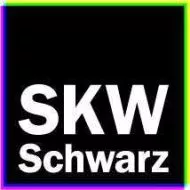- in United States
- within Cannabis & Hemp and Consumer Protection topic(s)
Television advertising remains the means of choice for confectionery manufacturers.1 However, they also have to look for alternative ways and channels because classic advertising is reaching consumers less and less. Branded content, consisting of well-packaged advertising that is not immediately recognisable as such, is therefore becoming more and more valuable. For example, "Ritter Sport" regularly manages to virally spread the introduction of new flavours and special editions on social media. Competitor "Milka" is countering this with large-scale influencer campaigns, for example under the hashtag #milkaschmecktwie. Legally, however, even on Instagram, YouTube & Co. advertising needs to be disclosed because the average consumer is less critical with regard to neutral statements than statements that are labelled as advertising. In Germany, this is regulated by the Unfair Competition Act (UWG), the Telemedia Act (TMG) and the Interstate Broadcasting Treaty (RfStV).
For many years, it has been unclear in Germany how to label influencer advertising on YouTube, Instagram or Facebook. Some recent decisions finally indicate a direction, although there is not always a clear line.
What has to be labelled as advertisement?
An online contribution must be labelled as advertising only if commercial communication is taking place.
Not every ad needs to be labelled explicitly. If the user can see at first glance that something is an advertisement, no further identification is required. In the case of a company channel, consumers will assume that the posts are advertising. Companies therefore do not need to label any content on their own YouTube or Instagram channels separately.
The situation is different with a channel or blog of an influencer where advertising must be labelled. Whether a specific content can be considered as advertising must be decided on a case-by-case basis.
When must an advertisement be labelled?
With regard to the question of when an advertisement needs to be labelled, a differentiation needs to be made depending on the circumstances:
Influencer buys the product
Until last year, it could be assumed that if the influencer buys the product and posts objective and neutral comments about it, this was basically not considered advertising and therefore did not have to be labelled. However, this assumption has now been confused by case law:
At the centre of these developments are three judgments of the Karlsruhe Regional Court,2 the Munich Regional Court3 and the Berlin Appellate Court.4
In the case against the fitness influencer Pamela Reif, the Karlsruhe Regional Court ruled that posts with embedded so-called "tap tags" (= links to other profiles/brands) without appropriate labelling were prohibited surreptitious advertising. It was irrelevant whether the influencer had received a payment for the individual posts because such non-sponsored posts also served at least the purpose of promoting the influencer's own business. Non-sponsored posts were therefore directly related to paid advertising contributions and the influencer "was also acting commercially".
This argumentation shows parallels with the judgment of the Berlin Appellate Court in the Vreni Frost case. The latter decided that a post did not contain any advertising subject to labelling if it only disseminated editorial content. However, a purely editorial content of the post could not be assumed if the "tap tags" in an Instagram article and the content on the tagged Instagram account did not contain any recognizable reference to the contribution in question and did not have any information content.
The Munich Regional Court held a different view in the case against Cathy Hummels. The court did indeed consider influencer posts on Instagram, on which products were labelled and linked to the corresponding online presences of the product manufacturers, to be commercial acts within the meaning of sec. 2 para. 1 no. 1 UWG even if the bloggers had not received any compensation from the linked companies. This is in line with the view of the Karlsruhe Regional Court according to which the influencers promote by their posts both their own business activities and those of the linked companies.
However, the Munich Regional Court assessed the specific case differently and ruled that the commercial purpose of the post resulted directly from the circumstances and thus a labelling was not necessary. The informed consumer had become used to the fact that influencers earned money through their activity and that they therefore did not make their posts for purely private purposes. Given the number of followers and the fact that the Instagram profile in question was a public profile of a known influencer verified by a so-called blue tick badge, the commercial purpose of the post was therefore immediately recognisable.
However, caution is also required for products purchased by the influencer in case there exists a business relation between the manufacturer and the influencer. The Frankfurt Higher Regional Court5 ruled that the recommendation of a product by an influencer on social media would in any case constitute prohibited surreptitious advertising if the influencer was employed full-time in the business sector to which the recommended product belonged and if the influencer had business relations with the companies whose products he or she recommended.
Goods provided for free
If the influencer receives the product free of charge, whether it is chocolate bars, muesli or jelly babies, the following differentiation must be made:
a) The company expects the influencer to make a positive reference in the post. This is advertising and should be labelled as such.
b) If the company sends a product without any agreement and leaves it up to the influencer to comment on it, which may also include a negative assessment, there is no advertising and thus no labelling obligation. However, the company or the agency involved must refrain from influencing the blogger. In this case, it is not necessary to indicate that the products have been provided free of charge.
However: in cases of doubt, the influencer or the promoted company must prove that the influencer was free in his assessment and that the post was made without any intention of advertising. In practice, this is difficult so that in the end it depends on the objective design of the post. If in the contribution includes only positive comments on the product, a court will probably presume an advertising intention and will affirm a labelling obligation. Influencers are therefore advised to label their posts as advertising if they include only positive comments, even when only reflecting their own, independent opinion.
Payment
If the influencer is paid by the company to evaluate its products in a positive manner, this is always considered advertising and must be labelled as such.
How should the advertisement be labelled?
The labeling of a post as advertising must be so clear that it is immediately apparent that the post has a commercial purpose.6 It is not enough if the average reader recognises the advertising effect of the article only after reading it carefully or through extensive scrolling.
To be on the safe side, the beginning of the post should include a statement in German such as "Anzeige" (advertisement) or "Werbung" (promotion).
It is questionable whether English terms such as "ad" or "sponsered by" are permissible in German advertising. Advertising on Instagram for the "Pantene" shampoo tagged "#sponsoredbypanteneprov" and for the fashion brand "Maxandco" with "#ad" was not sufficient for the Berlin Appellate Court.7
The Federal Court of Justice issued a similar decision under slightly different circumstances. The case involved the labelling of paid editorial posts. The court held that the label "Sponsored by" was insufficient and that the German word "Anzeige" (advertisement) had to be used.8 The Munich Regional Court also ruled that the notice "Acne – scars as an aftereffect (Sponsored – Acne Advisor)" was insufficient notice.9
Labelling a post as an "#ad" is not sufficient in any event if the tag is included in a so-called hashtag cloud. In a case decided by the Celle Higher Regional Court, the reference on Instagram was as follows: "#blackfriday #ad #eyes #shopping #rabatt (in English: #discount) #40percent". According to the Court, the commercial purpose of the post was not immediately apparent in the case of a label including so many hashtags. However, the Celle Higher Regional Court did not answer the question of whether a labelling as "#ad" would be sufficient.10
The State Media Authorities now advise against the use of "#ad", "#sponsored by", "#powered by".11
No court has yet decided whether the labelling with the Facebook and Instagram Branded Content Tool provides sufficient notice of the commercial purpose. When using the tool, Facebook displays the name of the influencer followed by "with [name of the brand]" and the notice "Bezahlt" (paid). Instagram displays the German notification "Bezahlte Partnerschaft mit [name of the brand]" (paid partnership with [name of the brand]). Both of these labellings should probably suffice. In any case, the use of the English version is not recommended as German courts consider that the English phrase "sponsored by" would not be understood by Germans.12
Infomercials have to be labelled throughout the entire duration as "commercial" or "infomercial".13 Infomercials are broadcasts lasting at least 90 seconds in which the advertising takes the form of an editorial, the promotional character is paramount and the advertising constitutes a significant component of the programme.14
In the case of product placement, a post must be labelled at the beginning and end for at least three seconds with the abbreviation "P" (for product placement).15
Conclusion
The German courts require advertising to be clearly labelled. Influencers targeting their posts to Germans are advised to use the German terms "Werbung" (promotion) or "Anzeige" (advertisement) at the beginning of an advertising post and, in case of doubt, to rather label their posts than not to do so. Advertising companies should contractually oblige influencers to such legally compliant labelling as the activities of influencers can be attributed to the companies. Given the changing and sometimes divergent case law, current developments in this area should always be kept in view.
Footnotes
1 https://lebensmittelpraxis.de/suesswaren/21101-werbung-ich-glotz-tv.html.
2 Karlsruhe Regional Court, Judgement of 03/21/2019, 13 O 38/18 KfH – Pamela Reif.
3 Munich Regional Court, Judgement of 04/29/2019, 4 HK O 14312/18 – Cathy Hummels.
4 Berlin Appellate Court, Judgement of 01/08/2019, 5 U 83/18 – Vreni Frost.
5 Frankfurt/Main a.M. Higher Regional Court, Decision of 06/28/2019, 6 W 35/19.
6 Celle Higher Regional Court, Judgement of 06/08/2017, 13 U 53/17, advertising for the drugstore chain Rossmann with "#ad".
7 Berlin Appellate Court, Decision of 10/11/2017, #sponsoredbypanteneprov and #ad.
8 Federal Court of Justice, Judgement of 02/06/2014, I ZR 2/11, GOOD NEWS II.
9 Munich Regional Court, Judgement of 07/31/2015, 4 HK O 21172/14 – "Sponsored – Akne-Ratgeber", advertising for the trademark "Eucerin" by Beiersdorf AG with the reference "Akne – Narben als Folgeerscheinung (Sponsored – Akne-Ratgeber)" (in Engl: "Acne – Scars as an aftereffect (Sponsored – Acne-Advisor)")
10 Celle Higher Regional Court, Judgement of 06/08/2017, 13 U 53/17, advertising for the drugstore chain Rossmann using "#ad".
11 See Guidelines of the State Media Authorities, available at www.die-medienanstalten.de/fileadmin/user_upload/Rechtsgrundlagen/Richtlinien_Leitfaeden/ Guideline_advertising_identification_social_media_offers_2019.pdf.
12 Federal Court of Justice, Judgement of 02/06/2014, I ZR 2/11 – GOOD NEWS II; Munich Regional Court, Judgement of 07/31/2015, 4 HK O 21172/14 – "Sponsored – Akne-Ratgeber".
13 Sec. 3, para. 3, sentence 2, Advertising Directive/FERNSEHEN.
14 Sec. 3, para 3, sentence 1, Advertising Directive/FERNSEHEN; see also the complaint of June 2017 about three YouTube videos by the influencer "Flying Uwe" filed by the Media Council of the Hamburg/Schleswig Holstein State Authority (MA HSH), press release available at www.ma-hsh.de/infothek/pressemitteilung/widerspruch-von-youtuber-flying-uwe-zurueckgewiesen-und-bussgeldverfahren-eingestellt.html.
15 Sec. 4, para. 3, sentence 4, Advertising Directive/FERNSEHEN.
The content of this article is intended to provide a general guide to the subject matter. Specialist advice should be sought about your specific circumstances.



